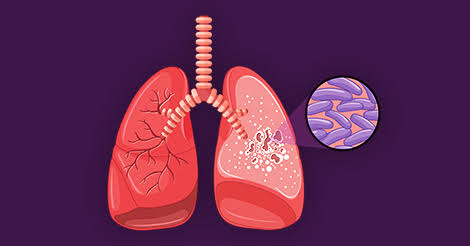
Published :
Updated :

Tuberculosis (TB) remains a major public health challenge in Bangladesh. While the disease was once reported to be endemic in certain areas of Dhaka, particularly in low-income communities due to overcrowded living conditions in urban areas, poverty and malnutrition have made rural populations equally vulnerable. However, since WHO declared TB a global health emergency in 1993, the Bangladesh government, with the support of NGOs, has been providing free TB testing, medication, and treatment to all citizens. Thanks to the sustained efforts by the National Tuberculosis Control Programme (NTP), supported by international agencies, significant progress has been made in controlling the spread of TB, leading to improved recovery rates among patients.
For nearly two and a half decades, several private organisations and NGOs, including BRAC, have been assisting the government in tuberculosis control efforts. The International Centre for Diarrhoeal Disease Research, Bangladesh (icddr,b) has also been playing a vital role in supporting these initiatives. A key factor in TB control has been the widespread implementation of the Directly Observed Treatment Short Course (DOTS) strategy, which has proven to be both effective and affordable. Hospitalisation is normally not necessary and the patient can even carry on with their normal vocation while undergoing DOTS. However, strict regularity of medication has to be maintained during treatment which usually runs for at least six months.
However, just as Bangladesh was making steady progress in its fight against TB, the recent cut in US funding threatens to undo years of hard-earned gains. According to news reports, under USAID funding, the icddr,b had been running approximately eight projects under which active tuberculosis or TB cases were identified and screened. Currently, all of these projects have been halted, and the staff working on them have been laid off. With the support of USAID, the private development organisation BRAC had also been running a TB research project. However, the project was halted in January. USAID's suspension is also posing a major challenge for the National Tuberculosis Control Programme (NTP), which relied on these funds to accelerate its work.
This is particularly alarming for Bangladesh where still 17 per cent of TB patients remain undiagnosed. The World Health Organization (WHO) has identified Bangladesh as one of seven countries with a high prevalence of both common and drug-resistant TB. According to WHO's 2024 global report, an estimated 379,000 people in Bangladesh contract TB each year. The NTP managed to identify 313,624 cases last year, leaving approximately 65,376 suspected patients undiagnosed. These undetected cases pose a major risk, as untreated individuals continue to spread the disease unknowingly within their communities.
While government officials claim that USAID's funding cut will not significantly hinder the nation's efforts to combat the disease, such assurances appear unconvincing given the existing challenges and the scale of the public health burden in the country. The Ministry of Health must take immediate steps to mobilise funds from alternative sources to ensure that both government and non-government TB programmes can continue without interruption. The government should also consider increasing budgetary allocations for TB prevention and treatment. Additionally, rigorous efforts are needed to raise awareness about TB among the general populace, including disadvantaged, vulnerable, and marginalised communities, to detect and address missing cases. The health authorities must employ and strengthen all necessary measures to contain this deadly disease. The country has eradicated polio (not a single case reported over the last decade) and eradicated smallpox long ago under global eradication programme. The country should build upon these successes to address the other public health menaces.
aktuhin.fexpress@gmail.com


 For all latest news, follow The Financial Express Google News channel.
For all latest news, follow The Financial Express Google News channel.